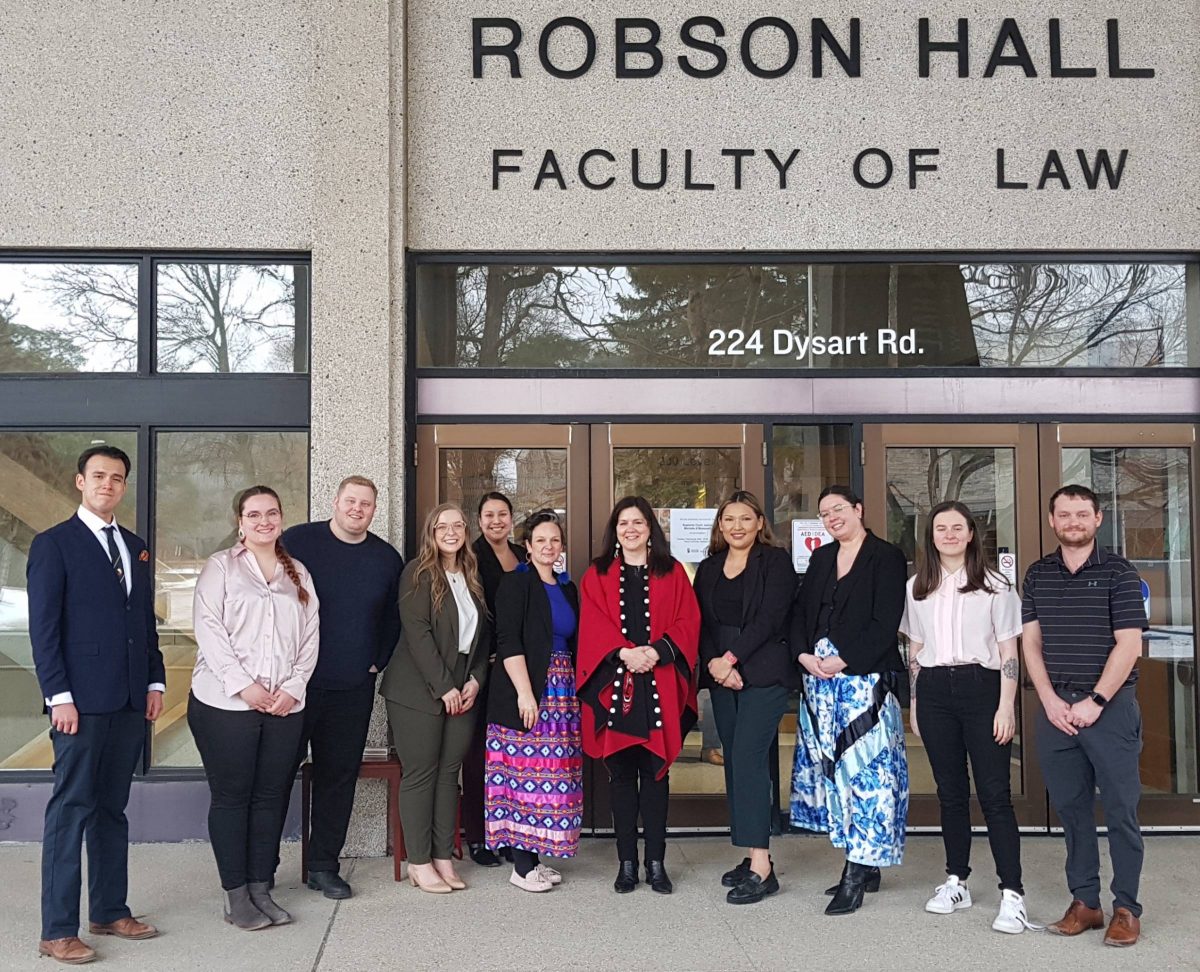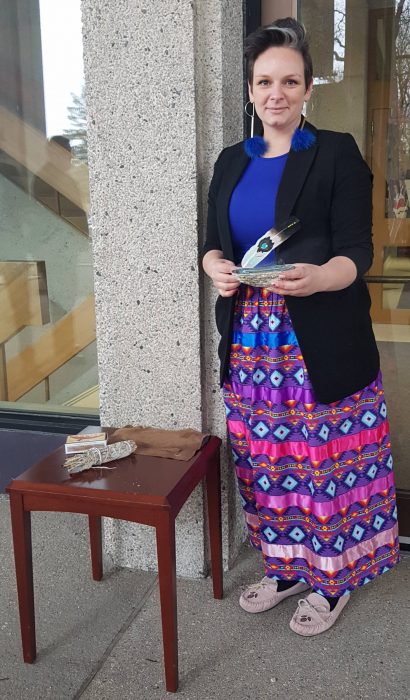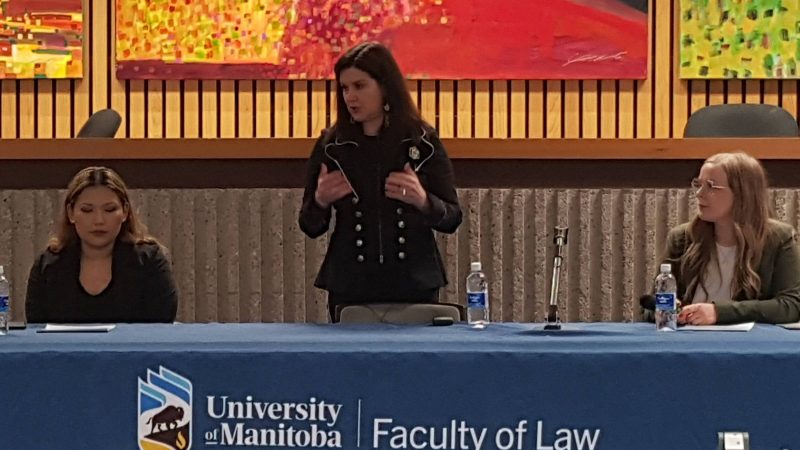
Law students welcomed The Honourable Michelle O'Bonsawin, Justice of the Supreme Court of Canada who visited Robson Hall on February 6, 2024.
Supreme Court of Canada Justice Michelle O’Bonsawin advises Robson Hall students to believe in themselves and work hard
“Anything is possible if you really believe and you work hard,” The Honourable Michelle O’Bonsawin, Justice of the Supreme Court of Canada told a room full of law students and professors On February 6 when she visited Robson Hall. She spent quality time answering questions and sharing lived experiences with the Faculty of Law community.
The Q & A session was led by Manitoba Law Student Association President Jayden Wlasichuck and Manitoba Indigenous Law Student Association VP Internal First Nations, Raven Richards, who took turns asking questions on behalf of law students. Questions including asking for advice and recommendations on what law students should learn, prepare and do to achieve success in their careers.
Justice O’Bonsawin recommended that all law students should at minimum, read the summary of the Truth and Reconciliation Commission’s Calls to Action. She emphasized that all Canadians need to have a better understanding of who Indigenous people are to be able to move forward towards Reconciliation.

MILSA VP Internal Métis, Melinda Moch, prepares to greet the Justice with a smudge at the entrance of Robson Hall.
Members of the Manitoba Indigenous Law Students Association had greeted the Justice upon her arrival at Robson Hall, offering her the opportunity to smudge, which she later remarked upon as being very meaningful to her and something for which she was very thankful. She further encouraged everyone in the room to intermingle and attend different cultural events to learn and understand the importance of such traditions.
Much of what the Justice discussed with the students was aimed to encourage them in their legal careers. She shared personal stories from her experiences as a law student, mother, lawyer, and judge, including the observation that a hallmark of good litigation is to “prepare, prepare, prepare.”
“If you want to be a really good litigator,” she said, “make sure you know your file inside out.” Even the nitty-gritty work of double-checking written submissions for spelling, grammatical, and even clerical errors such as page numbers and margins is critical. “Your written material is a reflection of who you are,” she cautioned.
Other advice included setting five-year goals, not being afraid to seek help and find mentors while in school, and to be respectful to everyone. Lastly, she encouraged law students to learn from their mistakes. “If I did it, all of you can do it,” she said.

Preferring to stand while answering questions, Justice O’Bonsawin inspired law students with stories of her life experiences as a law student, mother, lawyer and judge.
Justice O’Bonsawin is an Abenaki member of the Odanak First Nation. She was born in the Francophone community of Hanmer, Ontario near Sudbury, and is fluently bilingual. She holds four university degrees including a Bachelor of Arts from Laurentian University, a Bachelor of Law from the University of Ottawa, a Master of Law from Osgoode Hall Law School, and a Doctorate in Law from the University of Ottawa. She taught Indigenous law at the University of Ottawa and is a frequent guest speaker on Gladue principles, Indigenous issues, mental health, labour, and privacy law. She was appointed to the Ontario Superior Court of Justice in Ottawa in 2017 and was appointed to the Supreme Court of Canada on September 1, 2022.






